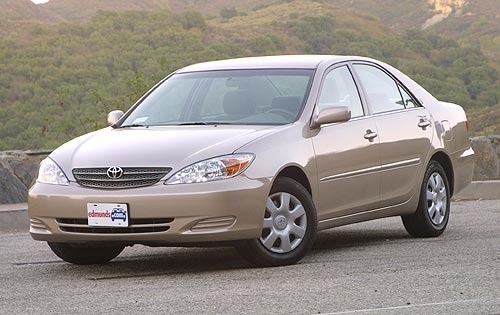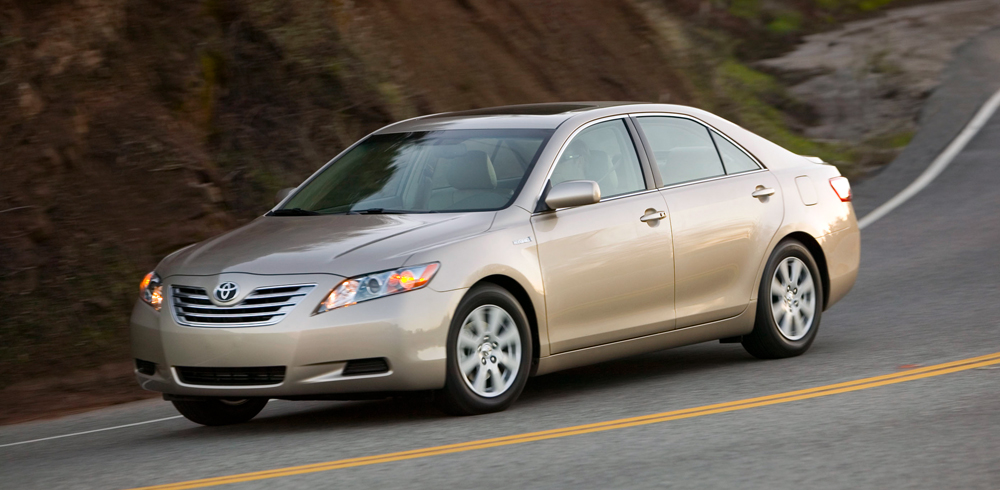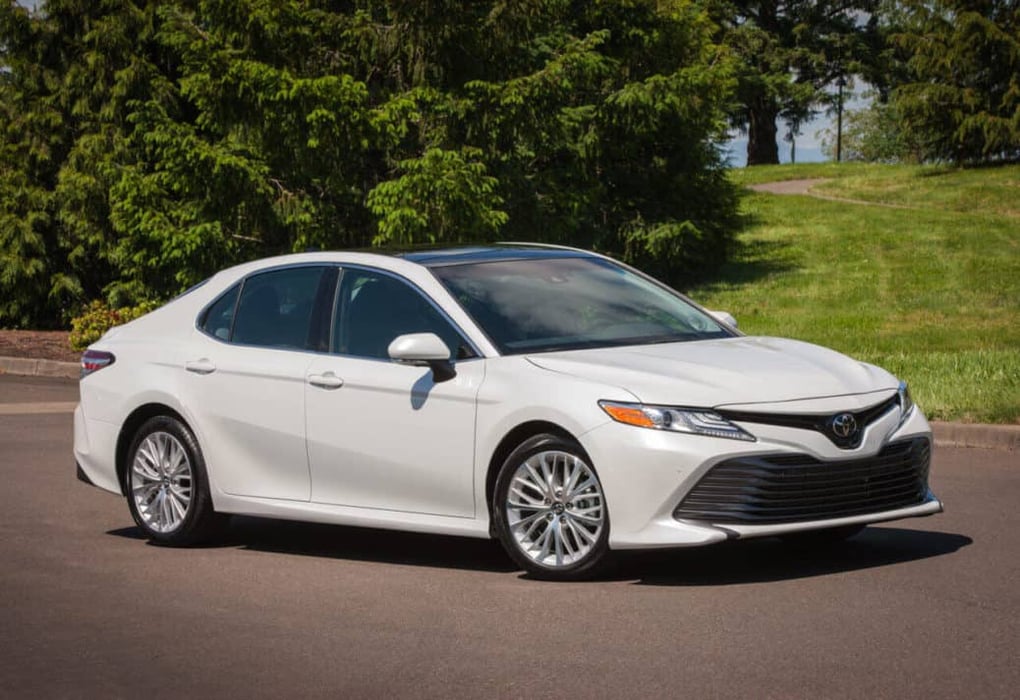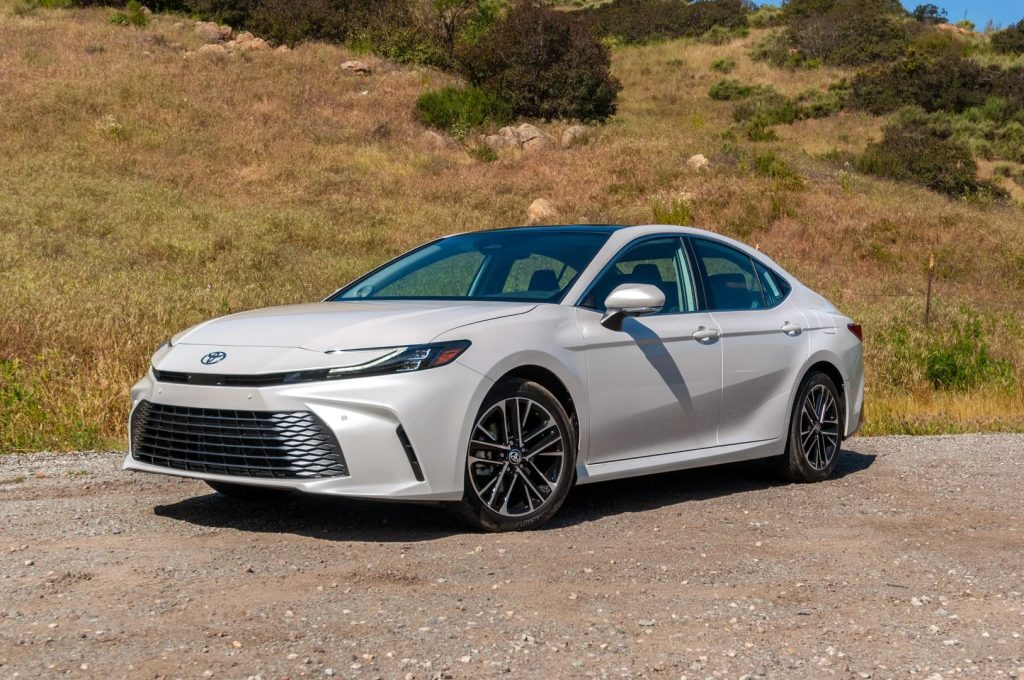Toyota Camry Buyer’s Guide: 2001 to Present
Overview: The Toyota Camry has been a staple in the midsize sedan segment, known for its reliability, comfort, and efficiency. Here’s a comprehensive guide to help you navigate through the different model years, focusing on key changes, features, and potential issues.
The Camry arrived to the U.S. for the 1983 model year, and introduced fuel efficiency and build quality surpassing it’s American made rivals. After decades long competition, there are no American sedans left in America. The Camry is America’s best selling sedan in 2024, beating out it’s long term rival the Honda Accord and newer rivals from Mazda, Kia, and Hyundai.
2002-2006 Toyota Camry

2002-2006: 2002 marked the beginning of the fourth generation Camry. The 2002 model introduced standard front-wheel drive, with engine options including a 2.2-liter four-cylinder or a 3.0-liter V6. This model is noted for its high reliability and simplicity. The years continued with minor updates, enhancing interior quality and safety features. The 2004 model introduced a hybrid variant, showcasing Toyota’s early foray into hybrid technology. This period is generally considered reliable, with the 2006 model being particularly praised for its balance of performance and comfort.
2007-2011 Toyota Camry

- 2007-2009: A significant redesign for the fifth generation, introducing a more aggressive styling and a new 2.4-liter four-cylinder engine. However, the 4 cylinder models from 2007-2009 were plagued with issues like excessive oil consumption and transmission problems, due to clogged cylinders. A recall was issued and Toyota extended their warranty for these 4 cylinder models to 150,000 miles. At this age, it’s best to just avoid these years of 4 cylinders altogether, and there was a massive jump in quality in 2010.
- 2010-2011: The Camry received a facelift in 2010 which included a new front fascia. Models with leather interiors were revised. The hybrid models from this generation were generally more reliable. However, it’s best to avoid older hybrids due to the age of the battery. The interior and handling were improved in these years, but reliability concerns remain.
2012-2017 Toyota Camry

- 2012-2017: The seventh generation brought a more modern look and feel, with a focus on improving the driving dynamics. The 2.5-liter four-cylinder and 3.5-liter V6 engines offered good performance, with the hybrid variant continuing to evolve. These years saw incremental improvements, with 2013 standing out for its reliability and few complaints. The 2015 model received a facelift, enhancing both interior and exterior aesthetics.
2018-2024 Toyota Camry

- 2018-2024: Another significant redesign ushered in the eighth generation, focusing on sportier handling and more advanced tech features like Apple CarPlay and Android Auto. The engine options were streamlined to a 2.5-liter four-cylinder, with a stronger V6 and hybrid options. These models continued to refine the Camry’s formula, adding all-wheel drive in 2020 and introducing a TRD performance variant. Reliability remained strong, although 2019 had some software connectivity issues.
2025 Toyota Camry

- 2025: The ninth generation introduces a complete shift to hybrid powertrains across all trim levels, offering front-wheel or all-wheel drive. This model emphasizes efficiency and modern technology, with a refreshed interior and exterior design.
Years to Avoid
- 2007-2009: These models are particularly notorious for oil consumption issues in the four-cylinder engines, leading to potentially costly repairs. There were also significant complaints about transmission reliability.
- 2018: While not as problematic, this year saw the introduction of a new platform with some teething issues, mainly in the electronic systems and initial quality control.
- 2019: Some owners reported issues with the infotainment system, particularly with connectivity features like Apple CarPlay.
Buying Tips:
- Inspection: Always have a pre-purchase inspection. There are YouTube videos detailing pre-purchase inspection checklists, however an experienced mechanic will be much more qualified due to their years of expertise.
- Maintenance Records: Look for cars with well-documented maintenance histories. Toyota Camrys benefit significantly from regular maintenance. Camry’s are famous for being able to run with spotty oil change histories, and are the closest thing there is to a car version of superman, but like anything will be harmed by poor maintenance.
- Hybrid Models: If considering a hybrid, ensure the battery and hybrid system components are in good condition, which can be checked through Toyota’s warranty or service history. Used hybrids are less of a sure bet, especially after 10+ years. Ask if the battery’s been replaced, and look up the cost, which can be a significant cash outlay, but if planned well and factored into the price can be a benefit to the buyer.
- Test Drive: Pay attention to how the transmission shifts and any unusual noises from the engine, especially in models known for these issues.
The Toyota Camry, across its generations, offers a compelling case for reliability and value. However, certain years have shown more issues than others, guiding potential buyers towards models with better track records for peace of mind and longevity.

